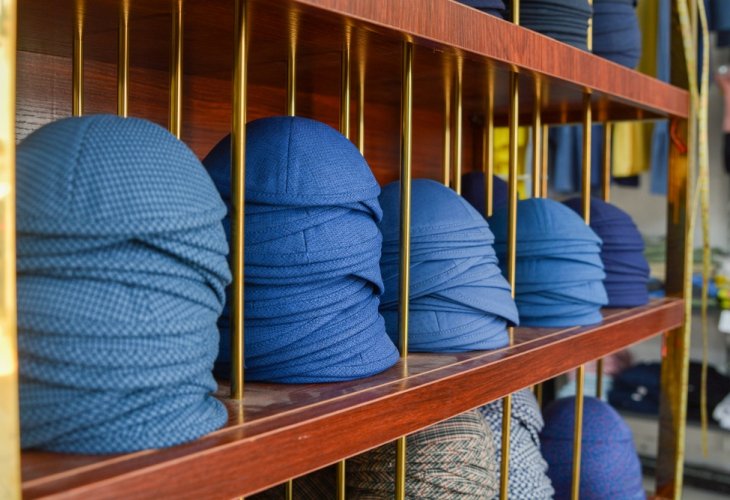Beginners Guide
Taking the Leap: Embracing the Kippah with Confidence
How one small act of faith can reflect inner growth, express your true self, and sanctify G-d's name- even when the world is watching.
 (Photo: Shutterstock)
(Photo: Shutterstock)You're already keeping Shabbat and gradually growing in your observance of mitzvot, but there's one step you're still putting off- wearing a kippah. It feels like a label, a commitment, and an undeniable stamp that says: “I'm officially religious.”
Do you just show up one day at work or school with a kippah on your head? Imagining the stares can be enough to make your stomach turn.
Is it really obligatory, and what do you gain from it? There’s a debate among the rabbis about whether wearing a kippah is a strict obligation or just a pious practice. According to the late Rabbi Ovadia Yosef, it's technically a pious custom. However, he wrote that in our times, it has taken on added significance and one should be strict about it, because the kippah has become a symbol of reverence for G-d and of identification with those who keep Torah and mitzvot.
As written in the Shulchan Aruch (the foundational code of Jewish law), it states that one should not walk four cubits (about 2 meters) with an uncovered head (Orach Chaim 2:6). The Mishnah Berurah by the Chafetz Chaim adds that one shouldn’t make blessings or learn Torah without a head covering. The Shulchan Aruch also rules that when mentioning G-d's name (like in a blessing), your head should be covered (Orach Chaim 91:3).
Jewish sources describe the kippah as something that awakens a sense of awe toward Heaven. The Talmud says, “Cover your head so that the fear of Heaven will be upon you” (Shabbat 156b). The kippah is a reminder that there's a higher authority watching over us. It helps restrain us from actions we might otherwise do, and keeps us mindful of our purpose and place in the universe. It's an expression of submission to a higher power.
Wearing a kippah is also a public declaration of loyalty to the Creator. It’s an act of kiddush Hashem- sanctifying G-d's name. It's a spiritual gesture that brings honor to G-d and spreads the light of Torah.
But beyond the symbolism, the mitzvah, and even the halachic discussion, how long can we live a double life? How long will we stay Torah observant in private while sending a totally different message to the outside world? The discomfort of being seen differently is understandable, and every person on this path has felt it. But eventually, it’s time to be honest with ourselves and with the world. Is the fear of “what will people say?” a good reason to keep hiding who you really are? Is there anyone out there worth denying your true self for? Probably not.
In today's world, where everything loud and public often runs counter to Jewish values and family ideals, it’s more important than ever to stand proudly and declare what we believe in for ourselves, and even more so for the honor of our Creator.
This Week’s Challenge:
Keep your kippah on all through Shabbat, and don’t take it off on Sunday. If someone asks you, “What’s the story with the kippah?” just smile confidently and say, “I’m growing".
Many people who were apprehensive to wear a kippah and finally took the leap say they were shocked to find that nobody said a thing. People are usually too caught up in their own lives to focus on your spiritual growth. Surprisingly enough, you’re not the center of their world. And in this case, that’s an encouraging advantage.

